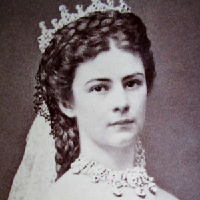Xu Hui (徐惠) tipo de personalidade mbti
Personalidade
"Que tipo de personalidade é Xu Hui (徐惠)? Xu Hui (徐惠) é um tipo de personalidade INFP em mbti, 4w5 - so/sx - 471 em enneagram, RLUAI em Big 5, IEI em sociônicos."
Biografia
Xu Hui (Chinese: 徐惠; 627–650) was a female Chinese poet, "the first of all women poets of the Tang, an individual scarcely even noted in traditional literary history... but the only one of the thirty-plus 'empresses and consorts'...given biographies in the official Tang histories to have any of her own writings quoted there." Xu Hui was the child prodigy daughter of Xu Xiaode, from Changcheng in Huzhou (in modern Zhejiang province). She became a minor consort to the Tang Dynasty's second emperor, Emperor Taizong of Tang. Although originally appointed as a fifth-rank court lady, a "Talented Lady" (cairen, 才人), she was later promoted to an imperial concubine status, as a "Replete of Mien" (Chongrong, 充容). Xu Hui is one of China's outstanding early female poets, and is believed to have written around one thousand poems, but only five survive today, including the well-known "Regret in Changmen Palace" on the popular Tang Dynasty topic of the neglected or abandoned lady. The poem refers to a specific historical incident when the Emperor Han Wudi's empress was "sequestered in the Tall Gate (changmen) Palace and feared she would be replaced in the sovereign's affections by a newer favorite".It reads, in partial English translation: You used to love my Cypress Rafter Terrace, But now you dote upon her Bright Yang Palace. I know my place, take leave of your palanquin. Hold in my feelings, weep for a cast-off fan. There was a time my dances, songs, brought honor. These letters and poems of long ago? Despised! It's true, I think--your favor collapsed like waves. Hard to offer water that's been spilled. Tradition holds that on the Emperor Taizong's death, she became ill from grief, and died the following year. Taizong's successor Gaozong posthumously honored her with the title Xianfei (賢妃), and promoted her father on her account to be prefect of Guozhou.She was also given the privilege of satellite burial within Emperor Taizong's mausoleum, the Zhaoling.Xu Hui (627-650), a native of Changcheng, Huzhou (now Changxing County, Zhejiang Province), was the virtuous concubine of Emperor Taizong Li Shimin of the Tang Dynasty. [44] At the age of four, he was proficient in "The Analects of Confucius" and "Mao Shi", and at the age of eight, he was good at writing. His father tested his talents and composed "Li Sao" as "Little Mountain Pian". From then on, his poems and essays became popular in the world. Emperor Taizong of the Tang Dynasty heard of his name and brought him into the palace as a talented person. Xu Hui's composition is written immediately and his diction is gorgeous. Soon, she was moved to Jieyu, and then to Chongrong. [44] In the last years of Zhenguan, the imperial court frequently mobilized troops to conquer the barbarians and built palaces, which caused complaints among the people. Xu Hui once went to Shuji to remonstrate with him, and he was highly praised by Emperor Taizong of the Tang Dynasty. After the death of Emperor Taizong of the Tang Dynasty, Xu Hui fell ill due to grief and wrote a seven-character poem in order to express his ambition. He died in the first year of Yonghui (650). [44] The era of Tang Dynasty ethnic group Han Date of birth 627 Death date 650 The main works are "Remonstrance to Emperor Taizong on Suspension of the Army", "Entering Emperor Taizong", "Giving a Beauty to the North" and "Imitation of Xiaoshan Chapter". My real name is Xu Hui Birthplace: Changcheng, Huzhou Chasing Concubine Feng Xian Table of contents 1 Character’s life ▪Family origins ▪Young and wise ▪Favored because of talent ▪Shangshujijian ▪Melancholy and early death 2 family members 3 personal works 4Character evaluation 5 Anecdotes and Allusions ▪Jiaoyu comes to the rescue ▪The Legend of the Flower God 6 film and television images Biographies broadcast edit Family origin Xu Hui was born in the Xu family in the Great Wall of Huzhou, Zhejiang (this is the branch of the Xu family in the East China Sea [1]). She is the fourth granddaughter of Xu Wenzheng, Marquis of Liang Ciyuan in the Southern Dynasties, the great-granddaughter of Xu Zong, the prefect of Chen Shi'an, and the granddaughter of Xu Fanggui, Linzhen of Yanzhou. Her grandmother is the Huang family of Jiangxia, who was born in the Southern Dynasties. Chen Sikong was the daughter of Duke Shen Guozhong. [2] The eldest daughter of Xu Xiaode, the governor of the second state of Yiguo in Tang Dynasty. His younger brother Xu Qitan and his nephew Xu Jian are all mentioned in history books. The younger sister is Gaozong Jieyu, who is also talented in literature. At that time, because of their outstanding literary talent, people compared the three Xu siblings to Ban of the Han Dynasty. There was another younger brother, Xu Qidan, whose deeds were not recorded. Emperor Xuanzong of the Tang Dynasty awarded him the title of Prince of Changcheng County. [1] Young and smart Xu Hui started talking when she was five months old. She was famili
Personalidades relacionadas

Empress Wu Zetian

Li Shimin (Emperor Taizong of Tang)

Empress Zhangsun

Heraclius

Li Zhi (Emperor Gaozong of Tang)

Yang Guang (Emperor Yang of Sui)

Amr ibn Hisham (Abu Jahl)

Khosrow II








